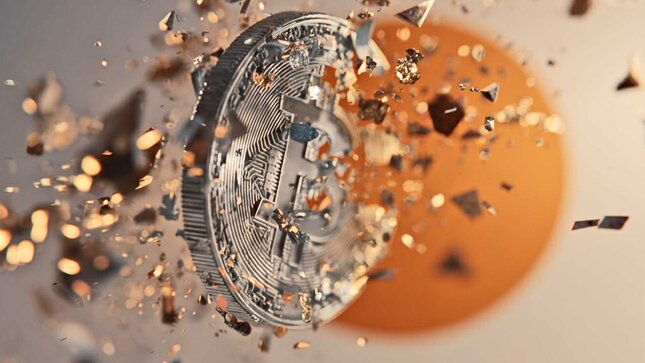The first thing you will learn as soon as you start your educational journey in the trading world is technical analysis. Technical analysis, as a trading technique, tries to predict future price movements based purely on past market data.
Technical analysis fanatics advocate that, in order to make favourable predictions about the future, there is nothing else you need to know about the world except the past prices and volume. According to them, you can lock yourself in a room, stare at the chart of any asset pair and make a profit based on some predefined rules and guidelines. You do not really need to know anything about the context in which the trading is taking place. All in all, not much of a difference from a tarot card reading.
There are two reasons why this trend is dominant especially in the retail trading industry - it's easy to practice and cheap! The most valuable resource when it comes to trading and investment is information and information has a price tag. Technical analysis does not require much of it. Just past prices which are then fed into some of the gazillions of available indicators and pattern detectors out there and here you go - you have a fortune teller! When the indicators state is X then it's better to buy and when the indicators state is Y, your best bet would be to sell. Follow the recipe and you will be successful! At least that is what the theory says...
The other side of the narrative is to use fundamental analysis. You will hear about fundamental analysis in the introduction part of numerous available trading courses but more or less that's it. Fundamental analysis is hard for introductory courses to dive into. It is much more than trading the GDP and the NFP. It requires a deep knowledge of the underlying industry and the relevant forces that drive it. This means access to a lot of information which is time-consuming to gather, hard to interpret and sometimes costly, i.e. access to a Bloomberg Terminal.
It also requires a certain educational background to be able to translate the information into insights about the future. For example, you need to have a solid background in economics and finance. It is a form of analysis not easily accessible to amateurs, hence it is skilfully skipped when training entry-level retail traders. A common advice a retail trader will get when trading is "Don't trade the news". This is just a disguised version for "Don't trade something you do not understand".
While technical analysis is not useless per se, on the contrary, it is an excellent tool as it is based on solid behavioural economics, it is also dangerous when used out of context. In the pandemic era, the need for understanding the fundamental forces of the economy becomes more prominent and highlights the importance of fundamental analysis. If you have been trading stocks, indices or commodities during this period, only using technical analysis, then you probably haven't done so well, since it is likely that you have received numerous false signals.
There is not much a stochastic indicator can tell you about a price war between the Saudis and the Russians, or a MACD about the Sino-American trade disputes or the recent market-disruptive Trump tweets. To make sense of what is happening on a chart, you need to look beyond it and understand what is going on in the world nowadays. You need to know a bit of everything - economics, geopolitics and even a bit of epidemiology.
A rational trading strategy should always be a mixture of fundamental and technical analysis. My personal preference is to establish a long-term trend, based on fundamentals and trade this trend using technical analysis to find good entry points. For example, in a world that is gradually reopening from lockdowns, airports resuming operations, people going back to work and planning their vacations, OPEC+ cutting oil production and the market heading towards a supply deficit, don't short oil no matter what an indicator tells you. Just don't!
Spotware Systems Ltd. is a software development company that provides software solutions (products) and development services to enterprises and corporate clients.
Editors’ Picks

EUR/USD: US Dollar to remain pressured until uncertainty fog dissipates Premium
The EUR/USD pair lost additional ground in the first week of February, settling at around 1.1820. The reversal lost momentum after the pair peaked at 1.2082 in January, its highest since mid-2021.

Gold: Volatility persists in commodity space Premium
After losing more than 8% to end the previous week, Gold (XAU/USD) remained under heavy selling pressure on Monday and dropped toward $4,400. Although XAU/USD staged a decisive rebound afterward, it failed to stabilize above $5,000.

GBP/USD: Pound Sterling tests key support ahead of a big week Premium
The Pound Sterling (GBP) changed course against the US Dollar (USD), with GBP/USD giving up nearly 200 pips in a dramatic correction.

Bitcoin: The worst may be behind us
Bitcoin (BTC) price recovers slightly, trading at $65,000 at the time of writing on Friday, after reaching a low of $60,000 during the early Asian trading session. The Crypto King remained under pressure so far this week, posting three consecutive weeks of losses exceeding 30%.

Three scenarios for Japanese Yen ahead of snap election Premium
The latest polls point to a dominant win for the ruling bloc at the upcoming Japanese snap election. The larger Sanae Takaichi’s mandate, the more investors fear faster implementation of tax cuts and spending plans.
RECOMMENDED LESSONS
Making money in forex is easy if you know how the bankers trade!
I’m often mystified in my educational forex articles why so many traders struggle to make consistent money out of forex trading. The answer has more to do with what they don’t know than what they do know. After working in investment banks for 20 years many of which were as a Chief trader its second knowledge how to extract cash out of the market.
5 Forex News Events You Need To Know
In the fast moving world of currency markets where huge moves can seemingly come from nowhere, it is extremely important for new traders to learn about the various economic indicators and forex news events and releases that shape the markets. Indeed, quickly getting a handle on which data to look out for, what it means, and how to trade it can see new traders quickly become far more profitable and sets up the road to long term success.
Top 10 Chart Patterns Every Trader Should Know
Chart patterns are one of the most effective trading tools for a trader. They are pure price-action, and form on the basis of underlying buying and selling pressure. Chart patterns have a proven track-record, and traders use them to identify continuation or reversal signals, to open positions and identify price targets.
7 Ways to Avoid Forex Scams
The forex industry is recently seeing more and more scams. Here are 7 ways to avoid losing your money in such scams: Forex scams are becoming frequent. Michael Greenberg reports on luxurious expenses, including a submarine bought from the money taken from forex traders. Here’s another report of a forex fraud. So, how can we avoid falling in such forex scams?
What Are the 10 Fatal Mistakes Traders Make
Trading is exciting. Trading is hard. Trading is extremely hard. Some say that it takes more than 10,000 hours to master. Others believe that trading is the way to quick riches. They might be both wrong. What is important to know that no matter how experienced you are, mistakes will be part of the trading process.
The challenge: Timing the market and trader psychology
Successful trading often comes down to timing – entering and exiting trades at the right moments. Yet timing the market is notoriously difficult, largely because human psychology can derail even the best plans. Two powerful emotions in particular – fear and greed – tend to drive trading decisions off course.


